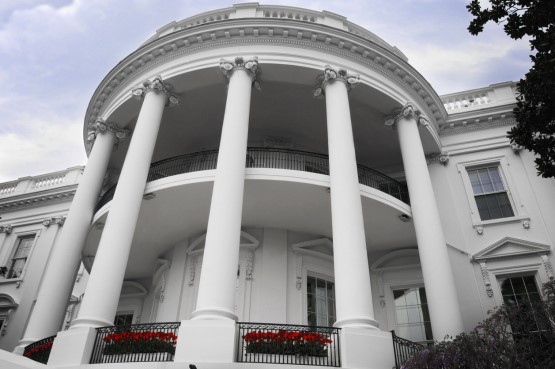European Union
The 2024 European parliamentary elections have brought significant shifts in the EU's political landscape, with emerging priorities such as strengthening the EU’s role in global climate action. The outcomes of these elections are shaping Europe’s future, influencing its political alliances, regulatory frameworks, and global relationships.
As the EU navigates this evolving political landscape, businesses and stakeholders must stay informed about the changing priorities and policies that will shape Europe’s future trajectory. Understanding these shifts is essential for anticipating the risks and opportunities that lie ahead.
Insights
Understanding the European Parliament
Why is the European Parliament important for business?
The European Parliament holds significant importance for businesses operating within the European Union and beyond. With its role in shaping legislation, policies, and regulations directly impacting businesses and their operations, it serves as a crucial legislative body.
By co-legislating with the Council of the European Union, the Parliament influences various aspects crucial to businesses, necessitating close monitoring and engagement to stay abreast of potential regulatory changes.
Moreover, as a forum for dialogue on areas where the Parliament doesn’t have competence, it exerts considerable influence on the European Commission and offers businesses the opportunity to contribute to discussions and ensure their perspectives are considered in policymaking.
When and how are the European Parliament elections organised?
The elections will take place between 6 and 9 June 2024. These elections, regulated by national electoral laws and traditions, typically employ a closed list system. Voters cast their ballot for a party and the candidates come from a predetermined list.
Each EU country has a set number of Members of the European Parliament (MEPs) based on its population, with additional seats allocated after the upcoming elections to various member states.
How do Parliamentarians make decisions?
MEPs operate within a structured organisational framework, primarily utilising the committee system. Committees specialise in specific policy areas and MEPs are assigned to these based on their expertise and interests.
Parliamentarians engage in detailed discussions, conduct hearings, and deliberate on proposed legislation. Plenary sessions serve as the final arena for decision-making, where MEPs debate and vote on legislative proposals, amendments, and resolutions.
What outcomes can we expect, and how will they affect business?
Foreseen in the 2024 EU elections is a significant shift towards, predominantly right-wing populist, anti-EU representatives. This shift is expected to reshape the power dynamics within the European Parliament, potentially affecting key policy areas such as sustainability and migration. Amidst this volatility, businesses must prepare for a dynamic geopolitical landscape, focusing on defence, crisis management and supply chain resilience.
What happens after the elections?
Following the elections, the incoming parliament nominates a candidate for the new President of the European Commission (see more here) and plays a role in selecting commissions (see more here). Candidate commissioners undergo hearings before parliamentary committees, providing MEPs and opportunity to influence the policy positions of the incoming Commission. After informal approval, the Commission College, including its president and high representative for foreign affairs and security policy, is approved by parliament.
Understanding the European Commission
Why does the European Commission matter to business?
The European Commission holds pivotal significance for businesses as it has the sole right of initiative, meaning that it is the only EU institution that can propose legislation as well as enact soft law. Tasked with ensuring member states apply EU law correctly, it can take action against a member state for failing to do so. The Commission also has the power to block mergers in the EU and impose hefty fines through its world-renowned antitrust enforcement role.
What will define the priorities of the next Commission
In the next five-year mandate, policy is poised to pivot towards several business-critical domains, with new priorities emerging from the 2019-2024 mandate. Competitiveness, resilience and economic security are offset to guide future policymaking. As the current intense cycle nears its end, the focus is anticipated to shift towards implementation and enforcement rather than on new initiatives. There’s a noticeable inclination towards dedicating more time to thoroughly preparing fewer pieces of new legislation, emphasising impact assessments and extensive consultations before proposing new laws. This shift responds to increasing calls from across political groups as well as industry that the sheer volume of legislation burdens those active in the EU, potentially hampering the bloc’s future growth and prosperity.
However, despite this shift, the agenda remains robust. Expect the new Commission to continue advancing the Green Deal agenda, including reviewing emissions targets and amending existing legislation. In the digital sphere, anticipation surrounds potential legislation such as the Digital Advertising Act and the Digital Fairness Act to safeguard consumers both online and offline. Further developments related to the recently adopted AI Act will take shape through implementing legislation, shaping the governance of AI systems. Technology’s role in financial services will prominent, potentially involving a review of cryptoasset legislation and continued work on open banking and open finance.
Corporate taxation initiatives left unresolved in the previous term will resurface fir discussion, possibly accompanied by renewed efforts to abolish unanimity in the tax space, driven by the acknowledgment of the EU’s need for an increased budget. Economic security and defence will take centre stage as the geopolitical tensions persist, as well as increased appetite for trade defence and outbound investment initiatives.
How is the commission appointed and assembled?
Member states are expected to nominate their candidate for Commission President in July, with Ursula von der Leyen widely expected to remain in post. Following this, the Council, in collaboration with the Commission President-elect, will select candidate commissioners – one for each member state. Structural continuity is likely, with the challenge of balancing portfolios based on member state size, political background and gender representation.
What should businesses look out for?
Following the appointment of the new Commission President, attention should turn to portfolio allocation and structural changes within the Commission, influencing decision-making and policy direction. Expect unpredictability in the process, with potential shifts in the Commission’s approach amidst changing political dynamics and industry calls for reduced regulation.
European Parliament Election Results
Our European Parliament election projection map displays the current composition of the Parliament alongside a projection based on the latest polling data compiled by Europe Elects, offering insights into the potential shifts across the EU political landscape.





